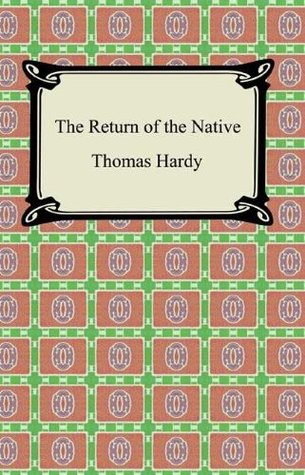More on this book
Community
Kindle Notes & Highlights
The expression of the place, the tone of the hour, were precisely those of many such occasions in days gone by; and these antecedent similarities fostered the illusion that she, who was there no longer, would come out to welcome him.
How to discover a solution to this riddle of death seemed a query of more importance than highest problems of the living.
But they were not possible to his situation. Instead of there being before him the pale face of Eustacia, and a masculine shape unknown, there was only the imperturbable countenance of the heath, which, having defied the cataclysmal onsets of centuries, reduced to insignificance by its seamed and antique features the wildest turmoil of a single man.
"The day I mean," said Yeobright, his voice growing louder and harsher, "was the day you shut the door against my mother and killed her.
Best natures commit bad faults sometimes, don't they?—I think they do. Now I will leave you—for ever and ever!"
"What a mockery!" said Clym. "This unhappy marriage of mine to be perpetuated in that child's name!"
What makes death painful except the thought of others' grief?—and that is absent in my case, for not a sigh would follow me!"
and, while uttering imprecations on the cause of her unhappiness, in some measure blessed the result.
To have lost is less disturbing than to wonder if we may possibly have won; and Eustacia could now, like other people at such a stage, take a standing-point outside herself, observe herself as a disinterested spectator, and think what a sport for Heaven this woman Eustacia was.
He took no particular pleasure in these deeds, but they formed a screen between himself and despair.
Harsh feelings produce harsh usage, and this by reaction quenches the sentiments that gave it birth. The more he reflected the more he softened.
How I have tried and tried to be a splendid woman, and how destiny has been against me!... I do not deserve my lot!" she cried in a frenzy of bitter revolt. "O, the cruelty of putting me into this ill-conceived world! I was capable of much; but I have been injured and blighted and crushed by things beyond my control! O, how hard it is of Heaven to devise such tortures for me, who have done no harm to Heaven at all!"
No firm and sensible Mrs. Yeobright lived now to support the gentle girl through the ordeal; and, whatever an unimpassioned spectator might think of her loss of such a husband as Wildeve, there could be no doubt that for the moment she was distracted and horrified by the blow.
Yet, of all the circle, he himself was the only one whose situation had not materially changed.
The stateliness of look which had been almost too marked for a dweller in a country domicile had at last found an artistically happy background.
If it had pleased God to put an end to me it would have been a good thing for all. But I am getting used to the horror of my existence. They say that a time comes when men laugh at misery through long acquaintance with it. Surely that time will soon come to me!" "Your aim has always been good," said Venn. "Why should you say such desperate things?" "No, they are not desperate. They are only hopeless; and my great regret is that for what I have done no man or law can punish me!"
He had no enemies, and he could get nobody to reproach him, which was why he so bitterly reproached himself.
Human beings, in their generous endeavour to construct a hypothesis that shall not degrade a First Cause, have always hesitated to conceive a dominant power of lower moral quality than their own; and, even while they sit down and weep by the waters of Babylon, invent excuses for the oppression which prompts their tears.
For a man of his habits the house and the hundred and twenty pounds a year which he had inherited from his mother were enough to supply all worldly needs. Resources do not depend upon gross amounts, but upon the proportion of spendings to takings.
"If you had remembered what I was once you wouldn't have been surprised." "Ah, no," she said quickly. "But men of your character are mostly so independent." "What is my character?" he asked. "I don't exactly know," said Thomasin simply, "except it is to cover up your feelings under a practical manner, and only to show them when you are alone." "Ah, how do you know that?" said Venn strategically. "Because," said she, stopping to put the little girl, who had managed to get herself upside down, right end up again, "because I do."
"Do what you think right, dear. I am only too glad that you see your way clear to happiness again. My sex owes you every amends for the treatment you received in days gone by."[3]
His mother's old chair was opposite; it had been sat in that evening by those who had scarcely remembered that it ever was hers. But to Clym she was almost a presence there, now as always. Whatever she was in other people's memories, in his she was the sublime saint whose radiance even his tenderness for Eustacia could not obscure.
"O, my mother, my mother! would to God that I could live my life again, and endure for you what you endured for me!"
But everywhere he was kindly received, for the story of his life had become generally known.


